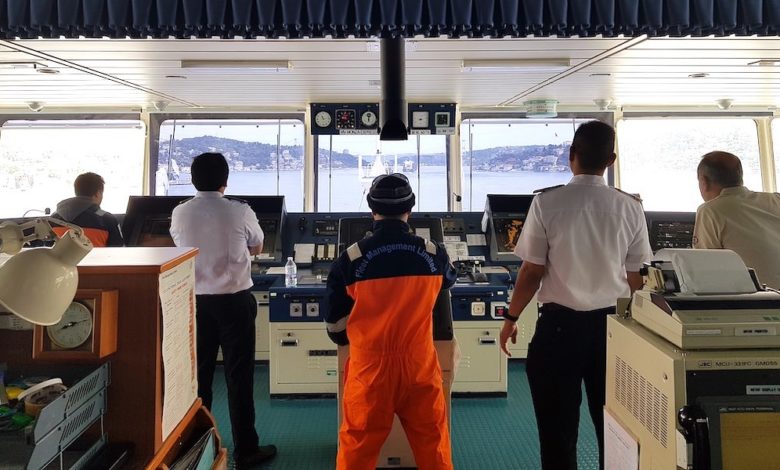You are here
As shipping goes digital, seafarers matter more than ever
As shipping goes digital, seafarers matter more than ever
June 24, 2022 https://splash247.com/as-shipping-goes-digital-seafarers-matter-more-tha...
Shipping’s digital and sustainability transition will be led by its people, and this is an opportunity to create a brighter future for seafarers, writes Matthieu de Tugny, president of Bureau Veritas Marine & Offshore.
Times have undeniably changed a lot since I was a seafarer myself, in the 1990s. At the time, the main engines were still controlled manually, while digitised and automated systems were only beginning to revolutionise shipping.
Since then, technology has transformed the very nature of the work at sea, but also the profile of our modern crews. Half a century ago, a conventional containership was operated by around 30 to 40 seafarers. Today, this number has halved, and in too many cases, those who remain on board are bearing the brunt, with significant repercussions on their workload and wellbeing.
However, the ongoing technological and digital revolution also brings the promise of a better future for seafarers. Automated systems will progressively replace people for some of the most dangerous or repetitive tasks. Digital reports will alleviate most of the reporting burden, enabling seafarers to focus on the thrilling work that brought them to a career at sea in the first place.
More diverse seafarers, at sea and on shore
Far from removing the human element, the current technology boom will enhance the role of seafarers. Smart and automated systems are no substitute for well-trained crew. Even when – or if – ships eventually reach full autonomy, people will still be needed to ensure their smooth running and intervene in case of an emergency.
The drive towards digitalisation is fundamentally changing what it means to work as a seafarer, while also bringing more diverse profiles into our industry. Seafarers need a broad range of skills to safely manage the various systems of today’s technologically complex vessels. Some are already training in data science and data analysis, while experts in cybersecurity, artificial intelligence and robotics are also joining the maritime sector.
An automated future will also enable a growing number of seafarers to spend more time working from shore, monitoring and controlling systems remotely. For many, this will be a major gain in terms of their quality of life, enabling them to have a meaningful career in shipping, while being able to go back to their loved ones every evening. This is also a positive change for seafarers at sea, who will be able to rely on the support of their teams on shore to solve issues on board.
As shipping’s workforce is being transformed, now is an opportunity to push for greater diversity and make shipping a more attractive career path for people from all backgrounds. We must actively support gender diversity, equity and inclusion to attract and retain the talent that will drive our industry forward.
A people-led digital transition
As an industry, it is our collective responsibility to support our seafarers through this era, by ensuring that they have the right training to handle the technical and safety challenges of new fuels and systems. However, the rollout of digitalisation should be based on a dialogue rather than being a unilateral process. Seafarers should be fully involved in the design and development of digital solutions, rather than simply trained once a new technology is deployed on board.
Shipping needs to listen to seafarers, and make the most of their first-hand experience of pain points that need to be tackled, and of solutions that are needed on board. Doing so will not only facilitate the daily work of seafarers, but also help shipping achieve the best possible outcomes for each vessel and company.
As seafarers are sharing their journeys on this Day of the Seafarer, the industry must realise that its own journey towards a digital and sustainable future must be centred on its most important asset: its people.

